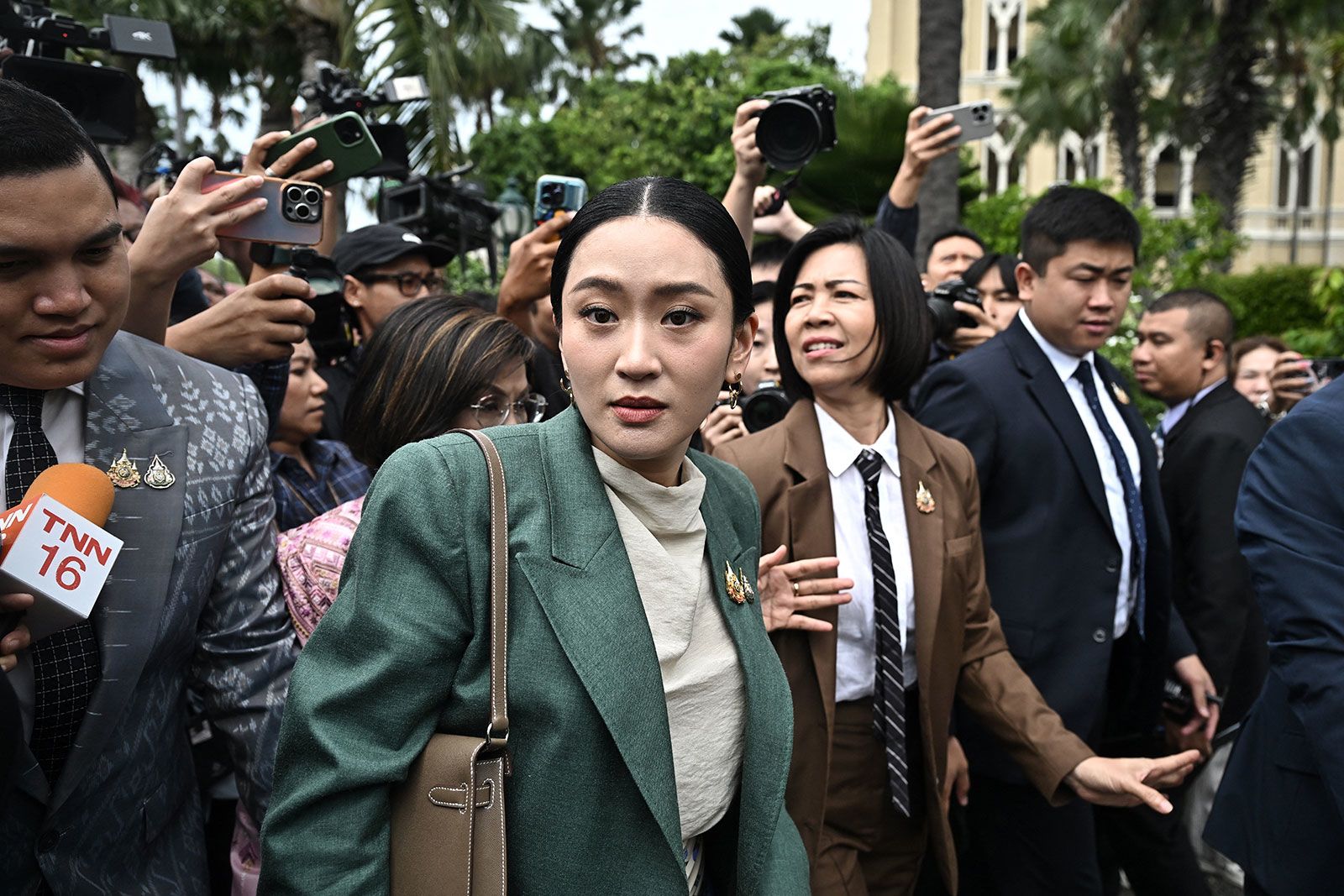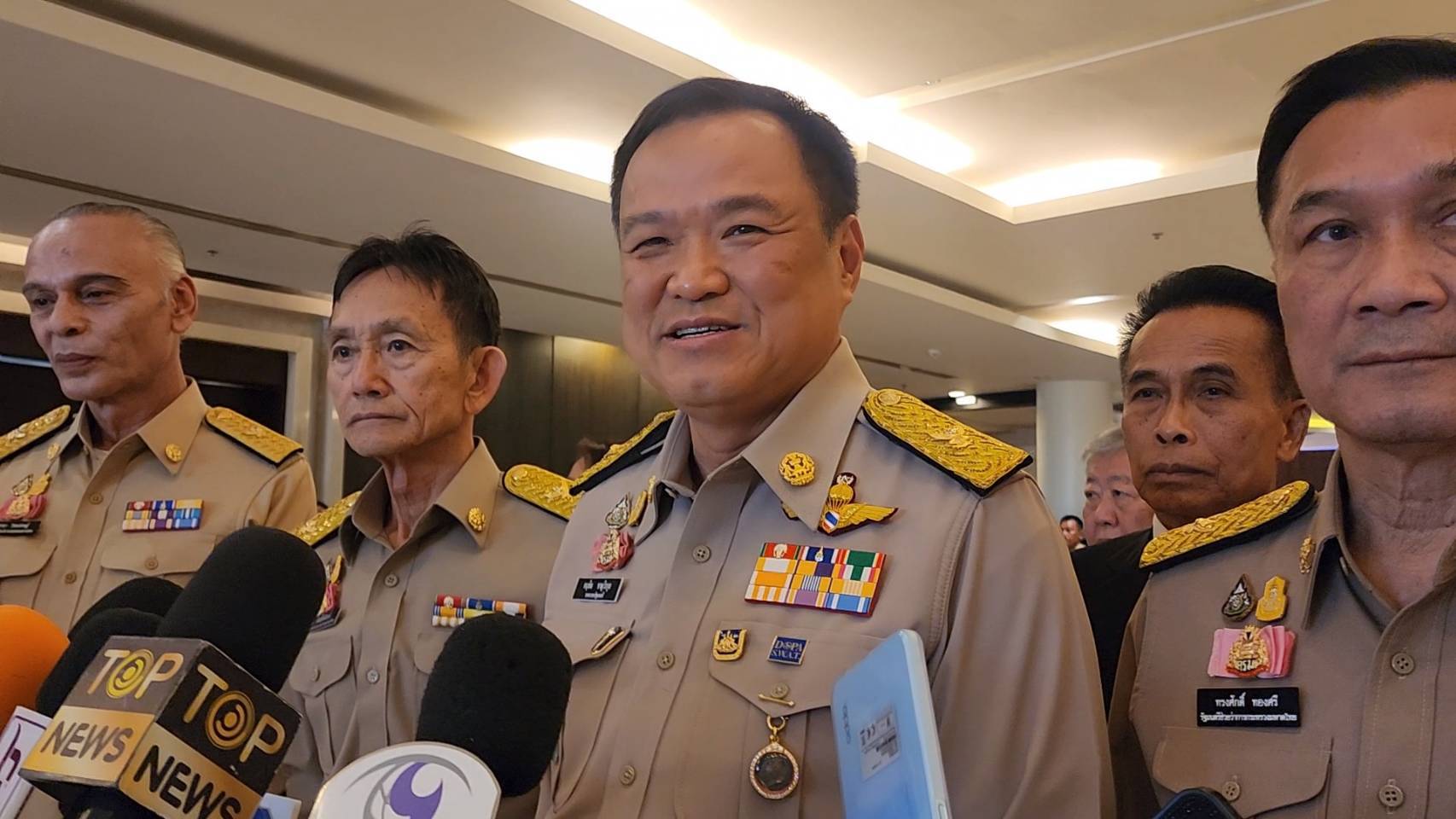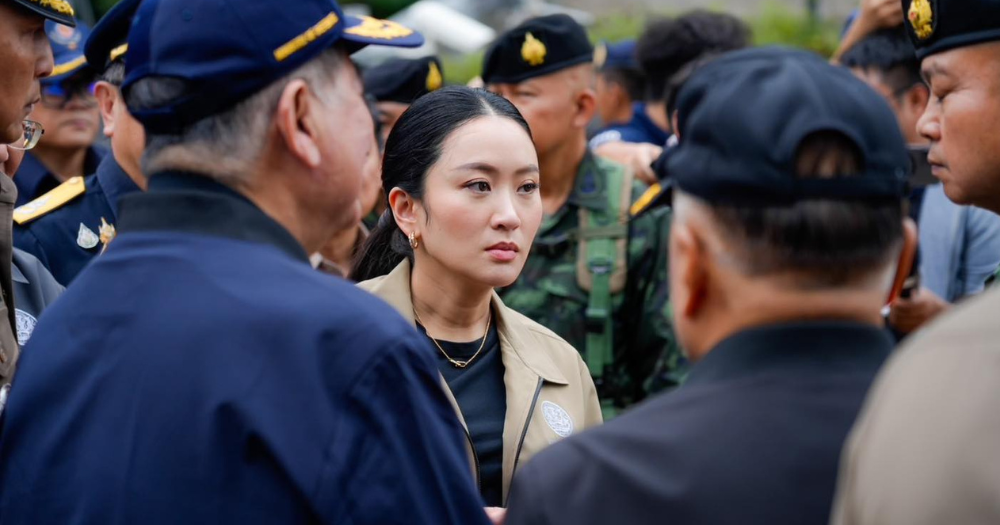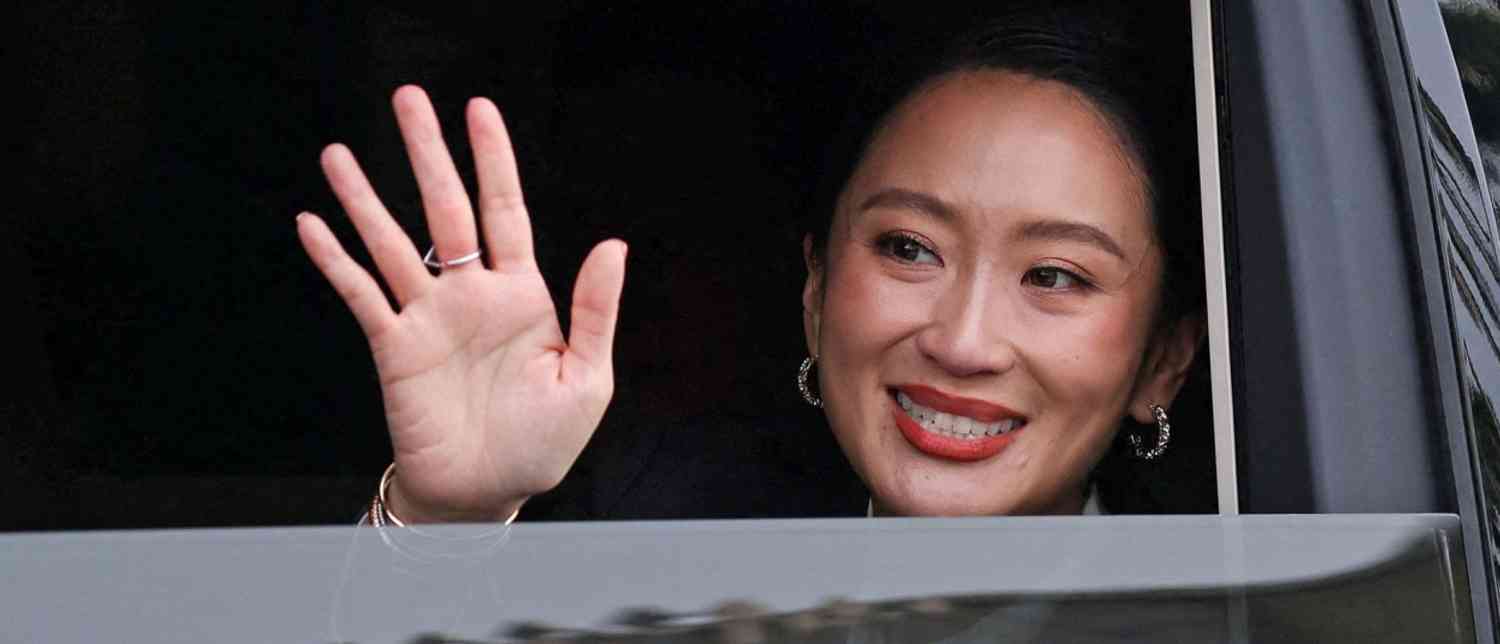
Paetongtarn Shinawatra: The Fall of Thailand’s Youngest Prime Minister and the Cycle of Judicial Power
When Paetongtarn Shinawatra assumed the premiership of Thailand, many hailed her as the new face of a political dynasty that had defined the country’s politics for more than two decades. Young, energetic, and the daughter of Thaksin Shinawatra – arguably Thailand’s most influential and polarising political figure – she represented both continuity and change. Yet less than a year into office, she has been forced to step down, her career undone not by the ballot box but by the gavel of Thailand’s Constitutional Court.
Her downfall, triggered by a leaked phone call with Cambodian strongman Hun Sen, has once again highlighted the precariousness of democratic politics in Thailand. It also reinforced the enduring question: who truly governs Thailand – its elected leaders, or the unelected institutions that have repeatedly intervened to shape its political course?

The Phone Call That Ended It All
The scandal that toppled Paetongtarn was deceptively simple. In June, she held a private phone call with Hun Sen, who after decades as Cambodia’s prime minister remains a towering figure in regional politics. On the recording, leaked by Hun Sen himself, Paetongtarn could be heard taking a conciliatory tone over the simmering border dispute between the two countries. She also criticised a senior Thai army commander – a statement that proved far more damaging than any words directed at Cambodia.
For her supporters, the call was a genuine attempt at diplomacy. For her critics, it was evidence of weakness, impropriety, and disloyalty. The Constitutional Court framed it as a breach of “ethical standards”, ruling that a prime minister must not disparage national institutions nor conduct sensitive negotiations without authorisation. The court voted seven to two to suspend her in July, and the August verdict confirmed her removal. She became the fifth Shinawatra-linked prime minister to be ousted by the same judicial body.

The Role of Hun Sen
Why did Hun Sen choose to sabotage Paetongtarn, despite his long friendship with her father Thaksin? The answer is murky. Hun Sen claimed that he had been personally insulted after Paetongtarn dismissed Cambodia’s use of social media propaganda as “unprofessional”. In his words, this was an “unprecedented insult” that forced him to “expose the truth”. But few observers believe the fallout was simply a matter of bruised pride.
Hun Sen has a long history of using information as a weapon, both domestically and regionally. By leaking the call, he not only humiliated Paetongtarn but destabilised her government at a moment when border clashes between the two countries had flared into a five-day war, killing more than 40 people. For Thailand, the optics were disastrous: its leader appeared to be fraternising with an adversary even as Thai soldiers were dying. For Hun Sen, the payoff was immediate – he reinforced his nationalist credentials at home and weakened the Shinawatras’ political machine next door.

The Constitutional Court: An Unelected Arbiter
To understand Paetongtarn’s downfall, one must understand the Constitutional Court itself. Established in the late 1990s as part of a wave of reforms, it was originally conceived as a guardian of democratic checks and balances. Yet over time, it has become one of the most interventionist judicial bodies in the world. Since 2006, the court has removed five prime ministers associated with the Shinawatra family and dissolved multiple political parties, including Pheu Thai’s predecessors and the reformist Move Forward Party, which had electrified younger voters in 2023.

The court’s critics argue that it operates less as a neutral arbiter than as a bulwark of conservative and royalist interests. In this view, it is part of a network of unelected institutions – the judiciary, the military, and the monarchy – that consistently act to contain or overturn electoral mandates that threaten the established order. Few other countries witness such frequent judicial intervention in political life. Thailand’s democratic cycle has thus become predictable: populist parties win elections, promising redistribution and reform; conservative institutions mobilise to cut them down; and the cycle begins anew.

The Burden of Dynasty
Paetongtarn’s rise was never just about her own political appeal. She carried the Shinawatra name, both a blessing and a curse. Her father, Thaksin Shinawatra, swept to power in 2001 with bold populist policies – cheap healthcare, village funds, and infrastructure projects – that transformed Thai politics by empowering rural voters. His success, however, alarmed the country’s traditional elites, who saw him as a threat to the monarchy and established order. After a military coup in 2006, Thaksin spent years in exile, yet his political machine endured. Successive parties aligned with him – Thai Rak Thai, People’s Power, and Pheu Thai – won elections handily, only to be toppled by coups or court rulings.

Paetongtarn, at just 37, was seen as the dynasty’s attempt at renewal. But her inexperience left her vulnerable. Many Thais assumed that Thaksin, recently returned to Thailand, remained the true decision-maker. Her critics dismissed her as a figurehead; her supporters hoped she would continue the family’s legacy of populist innovation. In the end, she achieved neither.

Policy Paralysis and Declining Popularity
Beyond the phone call, Paetongtarn struggled to govern effectively. Pheu Thai’s flagship “digital wallet” scheme – a plan to give 10,000 baht (£178) to every adult – was mired in delays and derided as a populist gimmick. Grandiose proposals, such as legalising casinos or constructing a “land-bridge” between the Indian and Pacific Oceans, failed to progress. The economic malaise persisted, fuelling disillusionment among voters. At a moment when nationalism surged due to the border conflict with Cambodia, the Shinawatras’ long-standing ties to Hun Sen looked like a liability rather than an asset. The party’s once unshakeable popularity has since waned. Analysts now predict Pheu Thai would lose a substantial number of its 140 parliamentary seats if elections were called.

What Comes Next?
Thailand’s constitution requires parliament to select a new prime minister from a pre-approved list of candidates. For Pheu Thai, only one option remains: Chaikasem Nitisiri, a loyal party stalwart but elderly and in ill health. He inspires little confidence as a unifying leader.
The alternative is Anutin Charnvirakul of the Bhumjaithai Party, but relations between him and Pheu Thai soured after his party quit the coalition over the phone call scandal. Even if Anutin were to assume the premiership, he would depend heavily on Pheu Thai’s larger bloc, an unstable arrangement at best. The People’s Party, the reincarnation of Move Forward, has vowed to stay in opposition until a fresh election is called, leaving parliament fractured and paralysed. A new election would be the cleanest resolution, but Pheu Thai fears heavy losses. For now, Thailand remains in limbo, governed by caretaker arrangements while its political class haggles behind closed doors.

A Systemic Problem
The fate of Paetongtarn Shinawatra illustrates a larger truth about Thai politics: elected leaders are seldom allowed to govern on their own terms. Since 2006, every Shinawatra-backed government has been cut short by either a coup or a court ruling. This dynamic has bred cynicism among voters, particularly the younger generation, who see the democratic process as hollow. The repeated dissolution of reformist parties has only reinforced this disillusionment. Thailand’s institutions argue that they are defending the constitution and protecting national stability. Yet the repeated sidelining of elected governments has left the country stuck in a cycle of instability – where elections change governments, but not the balance of power.

The End of Shinawatra Dominance?
For more than two decades, the Shinawatra name was synonymous with electoral victory. Thaksin’s populist revolution transformed Thailand’s political landscape, and for years his parties seemed unstoppable at the polls. Now, however, that dominance appears to be waning. Paetongtarn’s fall has not only removed the dynasty’s newest standard-bearer but also exposed its declining ability to inspire confidence. Thaksin’s political magic is fading, his daughter’s premiership has collapsed, and Pheu Thai faces electoral decline.
The real winner, once again, is the Constitutional Court – and by extension, the conservative establishment it is widely believed to serve. Thailand’s future remains uncertain, but one reality endures: in this country, prime ministers are chosen by voters, yet their survival depends on forces far beyond the ballot box.
With inputs from agencies
Image Source: Multiple agencies
© Copyright 2025. All Rights Reserved. Powered by Vygr Media.

























